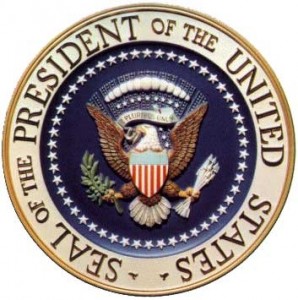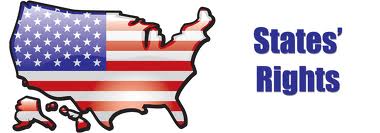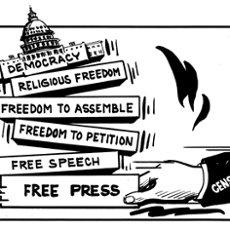Summary/Hint: Establishes the legislative branch of the federal government. It also includes this Vesting Clause: congress consists of a bicameral legislature, as well as enumerated powers and “necessary and proper” clauses.
What are the two houses of congress called?
(think of article)

Article 1: House of Representatives and the Senate.
Summary/Hint: Establishes laws and treaties in the U.S. made in accordance with the supreme law of the land. Forbids religious test as a requirement for holding a governmental position. Holds U.S. under constitution responsible for debts incurred.
What must all local and state laws agree with?
(think of article)

Article 6: They all agree with the constitutional or federal law, or they may be declared invalid or unconstitutional.
Summary/Hint: Protected from searches and seizures that are deemed unreasonable.
Does a police officer have to have a reason to search you? Why?
(think of amendment)

Amendment 4: Yes, it has to be a reasonable search and seizure to secure our homes and privacy, and there needs to be an oath said and a description of the particular place.
Summary/Hint: People retain rights absent enumeration.
Are all citizens’ rights listed in the Constitution?
(think of amendment)

Amendment 9: What does it mean if there are so many basic human rights that are not listed or enumerated rights can not infringe upon rights not explicitly stated?
What is the contextualization for the 3rd amendment?
Quartering of soldiers used to be allowed.
Summary/Hint: Establishes the executive branch, carries out federal laws, and gives powers for presidency.
What is the duty of the Executive Branch?
(think of article)
![]()
Article 2: Commander-in-chief/head of state, cabinet, committees, board, vice president, commissions, executive departments, and independent agencies are responsible for enforcing the laws.
Summary/Hint: Sets number of state ratifications necessary in order for the constitution to take effect and prescribes method.
How many months did the Constitutional Convention last?
(think of article)
![]()
Article 7: This meeting was held for approximately 4 months.
Summary/Hint: Right to a grand jury, forbids “double jeopardy,” and protects against self-incrimination.
What is due process?
(think of amendment)

Amendment 5:Legal requirement to respect legal rights owed to a person. Balances power of law of the land and protects individual person.
Summary/Hint: Defines balance of power between the federal and state governments.
If a power is not given in the Constitution who makes the decision regarding that issue?
(think of amendment)

Amendment 10: States are given reserved powers.
What is the contextualization for the 4th amendment?
Unreasonable searches and seizures happened frequently in the colonial times.
Summary/Hint: Establishes the judicial branch, supreme court and lower courts. It also defines treason.
What two types of cases does the Supreme Court decide?
(think of article)

Article 3: Cases prosecuted by U.S. gov’t., civil cases and state-court cases (federal laws.)
Summary/Hint: Protects religion, freedom of speech, and the press. Protects right to peaceful protest and to petition the government.
Can you and your friends write a letter of complaint to Obama?
(think of amendment)

Amendment 1: Yes, we have the right to do so by freedom of speech and petition.
Summary/Hint: Rights of criminal defendants, right to a trial without any sort of delay and impartial jury, right to a lawyer, and right to know of accusers and nature of charges.
According to this amendment can a person sit in jail for years awaiting their trial?
(think of amendment)

Amendment 6: No, grants anyone accused of a crime the right to a speedy trial.
What is the name of this course?
AP US History.
What is the contextualization for the 6th amendment?
The colonists didn't have a right to a speedy and public trial. Sometimes, they would await years to be seen.
Summary/Hint: Outlines relationship between states and the federal governments, empowers congress to admit new states, administer territories and other federal lands.
How are states supposed to treat the laws of other states?
(think of article)

Article 4: Honor and respect the state's laws.
Summary/Hint: We have the right to bear arms.
Although citizens have the right to bear arms, are there some places where you are not allowed to bring weapons?
(think of amendment)

Amendment 2: Yes, they are traditionally prohibited or restricted in certain public places to prevent genocide/homicide. “Sensitive” places include school, government buildings, courtrooms, public transit facilities, airports, and polling stations.
Summary/Hint: Right to a trial by jury.
Can you only receive a trial by jury if you are accused of murder?
(think of amendment)

Amendment 7: No, everyone has the right to trial by jury.
Who is the teacher of our class?
Dr. Bhatti
What is the contextualization for the 8th amendment?
Many used to receive cruel and unusual punishments, like hanging.
(Salem Witch Trials)
Summary/Hint: Describes the process for the constitution, the nation’s frame of government, to be altered. It is also a guide to propose an amendment, and subsequent ratification.
How can new amendments be made to the Constitution?
(think of article)
Article 5: Proposed by the Congress with a two-thirds (2/3) majority vote.
Summary/Hint: No quartering of soldiers.
What Act from the colonial times does this go against?
(think of amendment)

Amendment 3: Quartering Act
Summary/Hint: No excessive bail, fines imposed, or unduly harsh penalties.
Does the government have the right to torture someone who has committed a crime?
(think of amendment)

Amendment 8: No, it is a criminal offense against detainees, depriving them of rights and no cruel and unusual punishments can be inflicted.
Rate this jeopardy: easy, kind of hard, difficult.
Any of the answer choices are fine and gives you the points.
What is the contextualization for the 10th amendment?
The Anti-Federalists wanted reassurance of states having power to finally ratify the constitution, as opposed to the Federalists wanting a strong central government.